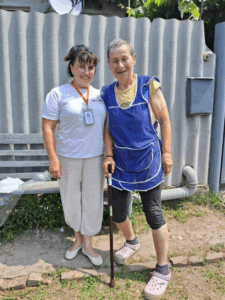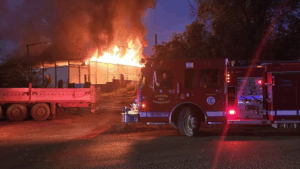
Deep in the Brazilian Amazon rainforest, where the nearest hospital is eight hours away and phone signals don’t reach, an innovative solution is quite literally keeping communities afloat. Floating healthcare centers — converted riverboats packed with medical equipment and staffed by volunteer doctors — are bringing essential care directly to the doorsteps of remote riverside villages.
The Challenge: Healthcare in the World’s Most Remote Communities
In villages like São Francisco along the Arapiuns River, residents live in a medical desert. With no doctors, limited internet, and healthcare facilities requiring costly four to eight-hour journeys, people often go without treatment until emergencies arise. As one villager put it bluntly: “People have already died because of the distance,” as quoted in The Telegraph.
The isolation is compounded by climate change, which has brought severe droughts and forest fires, creating new health challenges, including respiratory diseases from smoke exposure and extended periods of community isolation.
The Solution: Medical Care That Comes to You
Enter Brazil’s floating healthcare centers (UBSF) — a remarkable program that’s part of the country’s universal healthcare system. These converted boats serve as mobile hospitals, complete with consultation rooms, dental clinics, and pharmacies. Over a recent four-day expedition, two vessels visited seven remote communities, providing everything from routine vaccinations to emergency procedures.
The impact is immediate and profound. Take Rosinilda dos Santos, a 59-year-old grandmother who had suffered from a uterine polyp for five years. Using improvised equipment and a camping headtorch, a volunteer gynecologist successfully removed the growth right there on the boat. “It’s a weight off my mind,” she said, stepping back onto dry land where fellow villagers queued for their turn.

The Heroes Behind the Mission
The floating clinics are staffed by dedicated volunteers — doctors, nurses, dentists, and medical students who donate their time and expertise. Nurse Maria Rita Brasil, who manages one of the vessels, exemplifies their commitment, running between patients while sharing stories of treating rifle wounds and ectopic pregnancies in communities 32 hours from the nearest city.
These medical humanitarians don’t just provide treatment; they bring hope to forgotten communities. They work under challenging conditions, adapting to equipment limitations and handling whatever medical emergencies arise, all while maintaining the principles of universal healthcare access.
A Model for the World
Brazil’s floating healthcare system now includes 96 boats serving 83 municipalities across the Amazon and Pantanal regions. The program, integrated into national policy since 2013, requires boats to visit their coverage areas at least six times annually, providing vaccines, screenings, and urgent care.
While the system faces challenges — only 23 of nearly 100 boats function regularly due to maintenance and funding issues — it represents a groundbreaking approach to reaching the unreachable. The model demonstrates how medical humanitarians can overcome geographic and logistical barriers to uphold the fundamental right to healthcare.
The Bigger Picture
As climate change continues to isolate these communities and create new health challenges, the work of these floating clinics becomes even more critical. They’re not just treating patients; they’re preserving entire communities and ensuring that distance doesn’t determine who lives and who dies.
The floating healthcare centers of the Amazon remind us that medical humanitarianism isn’t just about responding to crises — it’s about innovating solutions that bring dignity, hope, and healing to the world’s most vulnerable populations, one river community at a time.
Read the original article by Constance Malleret in The Telegraph: The floating clinics bringing healthcare to the banks of the Amazon
Related Articles

Saving Lives in the Central African Republic: An Inside Look
The Central African Republic can be a difficult and dangerous place to operate, but International Medical Corps is delivering hope and lifesaving care to communities in crisis.

Mobile Medical Clinics Expand Health Care Access in Ukraine
FHI 360’s mobile medical teams bring rehabilitative care to conflict-affected communities in Ukraine, helping elderly residents regain mobility and independence amid ongoing war.

Providing Wheeled Support for Ukraine’s First Responders
Donated ambulances and other first response vehicles are finding new life in Ukraine, connecting patients to care. From Direct Relief.
